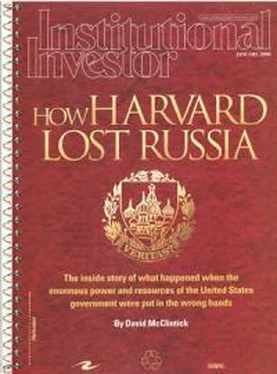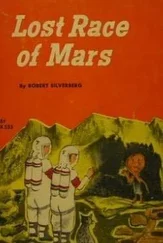Once again Treasury was arguing that Russia’s decreasing hard currency reserves and untenable finances would provide the leverage needed to compel the Yeltsin government to adhere to a responsible state budget, to enforce shareholder rights, and to adopt an effective tax code.
Treasury’s policy recycling effort left Sokolov, who complained of being presented with unsigned scraps of paper authorizing hundreds of billions in ruble transfers to private individuals as evidence of legitimate Finance Ministry expenditures, bemused; “You may tie our businessmen up, incarcerate them, and beat them to unconsciousness, and still it will be impossible to collect taxes from them, because they simply have no money to pay any tax of whatever kind. In our current conditions, further IMF lending will be diverted to the oligarchy. There will be no responsible state financing, only less for the people. Not one bureaucrat will lose his job, only teachers and medical personnel will be cut.”
By mid-June 1998, Sokolov and the U.S. Treasury’s Russian darling Chubais had returned to a country still home to a furious and impoverished population demanding their long overdue wages and pensions. For his part, Sokolov’s homecoming was sweetened by a well-organized Russian media vilification campaign that characterized his efforts in the U.S.as the deeds of a “traitor.” True, Sokolov was a traitor, a “class traitor” in the language of Lenin that is – to the oligarchs, to HIID, to the US-funded Chubais crowd and to one relentlessly self-advertising billionaire.
Adding insult to injury, the FBI returned a copy of Sokolov’s documents, not the originals. The problem was Sokolov’s documents were two-sided, the FBI’s copy one-sided. Sokolov never did get his original material returned, and nobody knows what the FBI did with it. Hmmmm.
Western pundits wrote their editorials pro and con regarding further IMF lending, and official meetings and conferences convened and adjourned, and yet matters were allowed to drift. Daily the Russian government assured the world – and Wall Street – there’d be no ruble devaluation. In mid-July, Anatoly Chubais undertook yet one more emergency trip to Washington to meet with Deputy Treasury Secretary Summers in his suburban lair for brunch and worked out the details of the proposed bailout. After the IMF received yet another assurance the Clinton administration would see to it that the U.S. Congress voted in a fresh $18 billion for their coffers, Chubais returned to Moscow in triumph, crowing a month later over how he had “conned” the West into a bailout commitment of $22.5 billion.[iii]
Once the first tranche of $4.8 billion was delivered to the Russian central bank, the bond market nose-dived. On 17 August, then Russian Prime Minister Sergey Kiriyenko announced a devaluation, which the IMF had anticipated, along with a 90-day moratorium on all debt payments, which the IMF had not anticipated.[iv] In short, Moscow had in effect defaulted on domestic and foreign debts, which led to the collapse of the stock market and major commercial banks. The IMF froze the remaining $18 billion of Russia’s bailout.
Emerging market bond traders in London took solace in the by-then-routine use of metaphor drawn from gruesome details of the Battle of Stalingrad. Commercial bankers and investors in regional debt focused instead on the hidden, possibly mystical significance of one Siberian province’s offer to redeem their bonds in sausage links and oak caskets. But it was the derivative traders who had the really big headache, having made their leveraged bets with rivers of borrowed money. By late August, everybody on Wall Street knew $5 to $6 billion of “guarantees” or “forward contracts” Russian banks had contracted with Western counterparties would never materialize.
Once the smoke cleared, Western bankers and investors found themselves alone, wandering a deserted battlefield littered with empty bags.
Furious comment exploded across a full range of Western media. Amidst the hysteria, nobody had the presence of mind to remember Veniamin Sokolov’s loud assurances six weeks earlier that what had happened was exactly what would happen.
While Taking the High Road
At the late 1990s’ Harvard-sponsored investment conference in Cambridge, Soros had criticized his former ally, Chubais, pronouncing his “robber capitalism privatization” to have been “repulsive” while asserting, “I didn’t want to have anything to do with it.” [v] The Russians in attendance sneered knowingly.
For some folks, philanthropy is just a big word for never having to say “chump change.”
[1] An American Depository Receipt is a share certificate that entitles the person with that security to shares of a non-U.S. company, which have been deposited in a bank located outside the U.S. This instrument is what allows foreign shares to trade on the NYSE, and their acceptance requires SEC approval.
[i] Wedel, Janine, “The Harvard Boys Do Russia,” The Nation , 1 June 1998.
[ii]
“Sachs Appeal,” Euromoney , February 1992.
David Lipton informed government investigators that on account of his previous business relationship with Jeffrey Sachs (Sachs and Associates), he recused himself – verbally, not in writing – from decision making on HIID’s Ukrainian grant effort. Lipton’s deputy confirmed his boss’s unwritten recusal. Nonetheless, government inspectors were puzzled as to why – according to that logic – Lipton did not recuse himself from issues regarding Moscow’s HIID operation. Lipton explained that since Russia was an ongoing program (and Ukraine wasn’t?), he felt no need to recuse himself. In the course of their long relationship, Sachs and Lipton had established a private consultancy – Sachs, and Associates – which was funded mostly by public funds. And despite Sachs’s assertion that he took no money from client governments, Slovenia revealed Sachs and Associates once billed the government $300,000 for advisory services. Slovenia initially declined payment, citing the inadequacy of Sachs’s and Lipton’s “kindergarten stuff” but reportedly the two did eventually get the money.The Slovenians were particularly bitter because Sachs interfered fatally, as he did in Russia, with the government’s employee buy-out privatization program.
[iii]
Paddock, Richard C., “Russia lied to Get loans, Says Aide to Yeltsin,” Los Angeles Times , 9 September 1998.
[iv]
Helmer, John, “Sour Grapes,” Moscow Times , 15 January 1999.
AFP, “IMF Tacitly Approved Russia’s August Debt Default: Ex-tax Chief,” 16 December 1998 as reproduced on Johnson’s Russia List #2522, Item # 11, 17 December 1998.
[v] Interfax , “Soros Denies Getting Involved in Russian Politics,” 20 October 1997.
While in the midst of denouncing Russia’s “robber capitalism” to Western reporters, Soros said “strengthening the oligarchy would benefit Russia. This would be a step forward for the country.” Ah dear, shades of Alexander Hamilton.
Beyond Imagination: Uranium One
By Anne Williamson
July 19, 2018
https://www.lewrockwell.com/2018/07/anne-williamson/beyond-imagination-uranium-one/
This originally appeared in Chronicles Magazine.
The multilayered story surrounding Uranium One—the former South African, then Canadian, and now Russian company, of which both Bill and Hillary Clinton and their family foundation are the enriched beneficiaries—has all the usual elements of a typical Clinton scandal.
A talented con man, Bill Clinton perfected his game in Arkansas. Through his control over state contracts, regulatory agencies, and judicial appointments, the creation of public credit and of agencies like the Arkansas Development and Finance Authority and their misuse, then-Governor Clinton was able to reward his allies, punish his enemies, and insert his political machine into nearly every endeavor, public and private, statewide. Clinton nailed down the couple’s franchise by continually getting himself re- elected governor of Arkansas, while his spouse handled the paperwork at the Rose Law Firm.
Читать дальше






![Джонатан Димблби - Barbarossa - How Hitler Lost the War [calibre]](/books/385421/dzhonatan-dimblbi-barbarossa-how-hitler-lost-the-w-thumb.webp)





